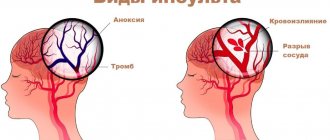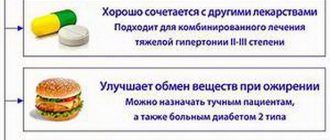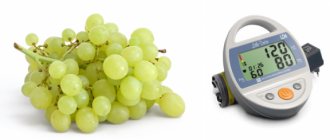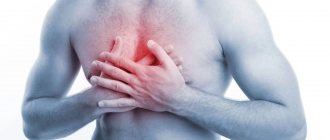Publication date: May 5, 2021
In life, you hear different opinions about whether alcohol increases or decreases blood pressure. Most often, it is believed that alcohol dilates blood vessels and thereby helps to reduce and normalize this indicator. But when examining patients in a state of intoxication, as well as patients with chronic alcoholism, hypertension is diagnosed in almost all cases. Among drug treatment clients, this tendency is detected in the majority of people seeking help.
Content:
- The influence of alcohol on indicators
- For hypertension
- At low pressure
- Related factors
- Possible consequences
- Compatibility of alcohol and antihypertensive drugs
- How to stop a rise
The most frequently asked questions to narcologists are whether alcohol increases or decreases blood pressure, and how alcohol affects existing hypertension or hypotension. The widespread belief that under the influence of ethanol blood vessels dilate, helping to normalize blood pressure, is incorrect. Conducted research and collection of statistical data indicate that in most cases of alcohol dependence, hypertension is diagnosed. A trend is also observed in people who regularly drink alcoholic beverages.
What alcohol increases blood pressure?
The most dangerous drinks for high blood pressure include vodka, whiskey, sweet wines, and beer. And each drink affects the blood pressure monitor in its own way. For example, strong alcohol (40 degrees) immediately after consumption reduces blood pressure by 20 mmHg. Art., both upper and lower. This is due to a sharp dilation of blood vessels in a person who drank 50–80 ml of alcohol.
However, this effect lasts only 10 minutes. After which a vascular spasm occurs, which restrains the blood pressure and provokes a jump in blood pressure above normal levels (on average by 40 mm Hg). At the same time, the pulse increases, and people suffering from diseases of the cardiovascular system may experience symptoms of arrhythmia. Strong alcohol can be drunk by people with normal and low blood pressure, but within acceptable dosages.
Doctors recommend drinking strong booze in quantities that will not cause a hangover. The calculation is as follows: 1.5 ml of ethanol per kilogram of weight for a single dose. Converted to milliliters, this is 3.75 ml of strong alcohol per kilogram. If the feast lasts for 5 hours, 4.7 ml of vodka or whiskey is considered a safe hangover-free dose. In this case, the next day there will be no characteristic symptoms of mild alcohol poisoning; the body will not cope with stress through vasospasm.
Sweet wines or vermouths are also unsafe for hypertensive patients. They put a strain on the pancreas and heart and contribute to excess weight gain, which is especially dangerous with high blood pressure. Beer, including non-alcoholic beer, contains ethanol in fairly small quantities. Therefore, 300–500 ml of intoxicating drink will not affect the increase in blood pressure if consumed twice a week. But if you exceed the dose, there is an increased effect on the kidneys, blood vessels and heart, which can be dangerous for every hypertensive patient.
Important! It is worth remembering that almost any alcohol does not have the best effect on blood pressure. And if a person has already encountered manifestations of hypertension, alcohol consumption should be minimized or eliminated altogether.
The influence of alcohol on indicators
To understand the issue, consider the effect of ethanol on blood vessels. In a healthy person, small doses lead to a slight decrease in blood pressure. The effect is due to the toxic effect on the neurons of the vasomotor center of the medulla oblongata, which is responsible for the tone of arteries, veins and capillaries. Temporary relaxation of the vascular walls occurs, thereby increasing the internal lumen. The action is felt as a general relaxation, a spreading of warmth throughout the body.
When drinking a large volume, the opposite reaction develops, causing vasospasm. The vascular lumen sharply narrows, blood flow slows down, accumulating in certain zones, and a sharp increase in indicators is observed. An addict or drinker with a history of hypertension may develop a hypertensive crisis. With systematic abuse, unexpected changes are likely.
For hypertension
In case of illness, alcohol causes jumps up to critical levels. The mechanism is as follows: relaxation is followed by a sharp spasm and the release of stress hormones into the blood. The heart rate accelerates, the organ pumps blood faster, thereby raising blood pressure.
Frequent consumption, especially in large quantities, is strictly contraindicated for hypertensive patients. Changes in blood flow caused by periodic relaxation and spasms worsen the condition of the body. Lack of oxygen and nutrients has a detrimental effect on health.
This is especially noticeable in people suffering from alcoholism, when there is a lack of vitamins and minerals. Not only does the risk of cardiovascular pathologies increase, but also premature wear and tear of the entire system.
Additional recommendations
- In the heat, the risk of a jump in blood pressure increases. Therefore, you should not quench your thirst with beer or cold wine, which may not have the best effect on the tonometer readings.
- At low blood pressure, alcohol is not as dangerous as at high blood pressure, and does not raise the numbers on the tonometer to critical levels. But alcohol abuse with low blood pressure can lead to a mini-stroke and other serious consequences for the body.
- Regular consumption of strong drinks can lead to alcoholism, which further aggravates the condition of the cardiovascular system with low or high blood pressure.
- You should not snack on alcohol with salted nuts, chips, or dried fish. Such food retains fluid in the body, which affects blood pressure, causing it to increase.
- Drink only high-quality licensed alcohol. Do not consume artisanal drinks. This threatens with irreparable consequences both for blood pressure and for the entire body as a whole.
- If the pressure after drinking alcohol increases to 150/110 mm Hg. Art. and your health has worsened, you need to seek medical help and not take the usual antihypertensive drugs that lower blood pressure, which may be incompatible with alcohol.
- The following conditions are also reasons to call an ambulance after drinking alcohol: vomiting, which cannot be stopped using the usual home methods, disorders of consciousness, autonomic disorders in the form of rapid heartbeat, cold extremities, paralysis, as well as a decrease in blood pressure below 90/50 mm Hg. Art.
At low pressure
With hypotension, the walls of blood vessels are dilated and are in a state of decreased tone. Under the influence of small doses of ethyl alcohol, the muscles of the vascular walls relax even more, thereby reducing the pressure of blood flow. The blood supply to the extremities and brain deteriorates, and the ensuing hypoxia causes drowsiness. It is for this reason that a drunk person feels numbness in his legs and dizziness.
Regular drinking leads to increased pressure and even greater stretching of the walls. The accumulation of cholesterol and changes in blood composition provoke the formation of blood clots and atherosclerotic plaques. 5-6 hours after a heavy libation, dehydration of the body occurs, hemoconcentration of the blood increases, that is, its thickening. In this regard, the formation of blood clots and the complete deterioration of blood supply, especially small capillaries, increases.
Related factors
In addition to the dosage, the patient’s age, existing diseases and even the type of drink are affected. Under the age of 40, changes are practically not felt even after prolonged use. Over 40 and up to 55 years, 67% of people experience symptoms of blood pressure surges. In old age, almost every person who drinks has problems with the functioning of the cardiovascular system.
Existing pathologies of the heart and blood vessels, as well as the kidneys and endocrine system, greatly increase the risk of hypertension with systematic use and the presence of chronic alcoholism . Also, aggravating factors are considered to be a tendency to blood clots, elevated cholesterol levels or diabetes mellitus, intracranial hypertension.
There is an opinion that cognac relieves spasms and normalizes blood flow, but the temporary effect has already been written above. Taking wine in therapeutic doses is also not justified. Even the consumption of a small amount does not go unnoticed and causes damage to health.
It is better not to drink alcohol if you are obese and prone to swelling. This will only make the condition worse.
Is there a safe alcoholic drink?
What kind of alcohol lowers blood pressure without subsequently increasing it? Some people believe that small doses of cognac, dry wine or a glass of champagne do not increase, but rather stabilize blood pressure. There is some truth in this. But the statement is relevant only for people who drink strong drinks rarely - no more than once a week and in small quantities. Abuse of blood pressure-stabilizing alcoholic beverages leads to the development of arterial hypertension with all the ensuing consequences.
In addition, alcohol carries a risk of developing hypertension due to the fact that it can raise body weight to a critical level in occasional drinkers due to the calorie content of the drinks and the snacks that come with them. And obesity is one of the provocateurs of arterial hypertension.
Perhaps the safest alcoholic drink for high blood pressure is dry wine. It allows you to increase vascular tone, relieve tension and slightly reduce blood pressure. For a therapeutic effect, high-quality wine is diluted in a ratio of 1 to 2 with mineral water. You can afford such a cocktail if there are no additional contraindications.
If you have a choice between vodka, beer, wine or whiskey, give preference to dry wine in reasonable doses
Red wine contains antioxidants that bind free radicals, have a beneficial effect on the cardiovascular system and stabilize blood pressure. This statement is supported by the statistics of cardiovascular diseases in the homeland of the best dry wines - in France. It is the lowest in the world, despite the fact that the French diet cannot be called healthy due to the abundance of flour, sauces and spices, as well as the obligatory glass of wine at lunch and dinner.
No ads 1
Possible consequences
Among the heart pathologies caused by systematic abuse, the most common are:
- chronic heart failure;
- alcoholic cardiomyopathy;
- organic and functional myocardial lesions, ischemic heart disease;
- arrhythmias.
The danger is posed by changes caused by prolonged binge drinking or a state of abstinence, during which severe complications develop.
- Ischemic strokes, accompanied by impaired cerebral circulation, leading to partial paralysis and disability.
- Arrhythmias, manifested either by a rapid heartbeat or a slowdown.
- Hypertensive or hypotensive crises are cases of sustained decrease or increase, tolerant to the action of drugs.
- Myocardial infarction, causing partial impairment or loss of pumping function.
- Transient ischemic attacks are cerebral circulatory disorders that cause neurological abnormalities: speech disorders, loss of memory or motor functions, paresis.
Alcohol increases and sometimes decreases blood pressure. In addition, it neutralizes the effects of drugs to normalize blood pressure. Because of this, during horse racing, the attack cannot be controlled with medication.
How to quickly reduce blood pressure after binge drinking with the help of medications?
To date, there is no clinical data on the effectiveness of specific medications in the treatment of high blood pressure after binge drinking. 2 mg of dexamethasone per day suppresses acute alcoholic hypertension in humans. ACE inhibitors and angiotensin type 1 (AT1) receptor blockers are also thought to reduce blood pressure after binge drinking.
It is possible to use drugs such as Captopress or Captopril, but it is better not to get carried away with them, since they have a strong diuretic effect and flush potassium from the body.
Angiotensin II type 1 receptor blockade prevents alcoholic cardiomyopathy in dogs. Calcium channel blockers, because of the potential for calcium involvement in the development of alcoholic hypertension, may also lower blood pressure after binge drinking.
Compatibility of alcohol and antihypertensive drugs
If you are diagnosed with hypertension and take daily medications, you should stop drinking strong drinks, since ethanol reduces the effectiveness of the drugs. On rare occasions you can drink a glass of good wine.
The use of most antihypertensive drugs during or after drinking any alcoholic beverages is also prohibited. A proven medicine, when interacting with ethyl alcohol, can give an unexpected side reaction.
Carefully read the instructions for the drug for interactions, since taking certain medications together is potentially dangerous to health and life.
Combination of alcoholic beverages with medications for hypertension
Combining alcohol intake with drug treatment for hypertension is not allowed. Patients taking medications for high blood pressure are advised to avoid drinking alcohol on the day of taking the medications. Ethanol present in the body increases the toxicity of medications and increases the risk of adverse reactions. Each drug has a huge list of possible side effects, sometimes causing death.
Before taking alcoholic beverages, you should check the compatibility of the medications you are taking with alcohol and read the instructions for the medication. If you plan to celebrate any holiday, you can do without alcohol. As a last resort, you can postpone taking the prescribed medication to the next day. Preference should be given to sober communication with close friends, avoiding the development of a negative scenario with an uncertain ending.
Medicines for hypertension should not be taken independently in cases of pressure surges that occur as a result of deep and prolonged drinking, as this can aggravate the condition. The first thing to do is try to get out of the binge, unless of course the situation is critical. After cleansing the body of ethanol breakdown products, you can begin treating hypertension. It is not always possible to get out of binge drinking on your own without qualified medical help. A rapid increase in blood pressure and alcohol poisoning can lead to the death of the patient. Therefore, in case of sudden jumps in blood pressure, you should urgently seek help. The indication for calling an ambulance is systolic pressure above 180 mmHg. If the systolic pressure is below 180 mm Hg, you need to quit the binge, gradually reducing the amount of alcohol taken.
It is necessary to monitor your blood pressure all the time. If it continues to grow, and in addition to this, disturbing symptoms appear, you need to call an ambulance. If you manage to get out of the binge smoothly, you can begin to lower blood pressure using a special treatment regimen after binge drinking.
How to stop high blood pressure during abstinence
When drinking strong alcohol, sharp changes are characteristic. What to do when alcohol lowers or increases blood pressure during withdrawal:
- measure indicators;
- if a jump of more than 20% of the individual norm is detected, call emergency medical help;
- if the jump is less than 20%, you need to drink more fluid to prevent dehydration.
Taking sorbents - polysorb, enterosgel, activated carbon will help remove toxins faster.
If you have existing diseases, you should stop drinking alcohol. A timely visit to a narcologist will help with this.
Alcohol with low blood pressure
Some people believe that in order to normalize low blood pressure, it is necessary to drink alcoholic beverages in small doses, which are supposedly useful for variable blood pressure levels.
Clinical studies that guide experts confirm the opposite. When drinking the first dose of alcohol, the blood vessels relax even more, which can provoke a so-called crisis in hypotensive patients. This occurs as a result of weakened tone of the arterial walls and accelerated blood flow.
Literature:
- Risk factors for arterial hypertension / V. R. Weber, B. B. Fishman; Feder. education agency, Novgorod. state University named after Yaroslav the Wise, Novgorod. scientific Center of the Northwestern Branch of the Russian Academy of Medical Sciences. — St. Petersburg: Novgor. state univ., 2005 (St. Petersburg: Printing house “Science”). — 207 p.
- Hypertension. High blood pressure disease [Electronic resource]: blood pressure control, non-drug methods for treating hypertension, lowering blood pressure with the DASH diet: 12+ / P. A. Fadeev. - Moscow: Eksmo, 2014. - 430 p.
- Alcohol and arterial hypertension / Ostroumova Olga Dmitrievna, Saperova Ekaterina Vladimirovna / 2014 / Rational pharmacotherapy in cardiology.
- Changes in the daily blood pressure profile under the influence of systematic alcohol consumption / Zhirov I.V., Ogurtsov P.P., Shelepin A.A. / 2000 / Bulletin of the Peoples' Friendship University of Russia. Series: Medicine.









